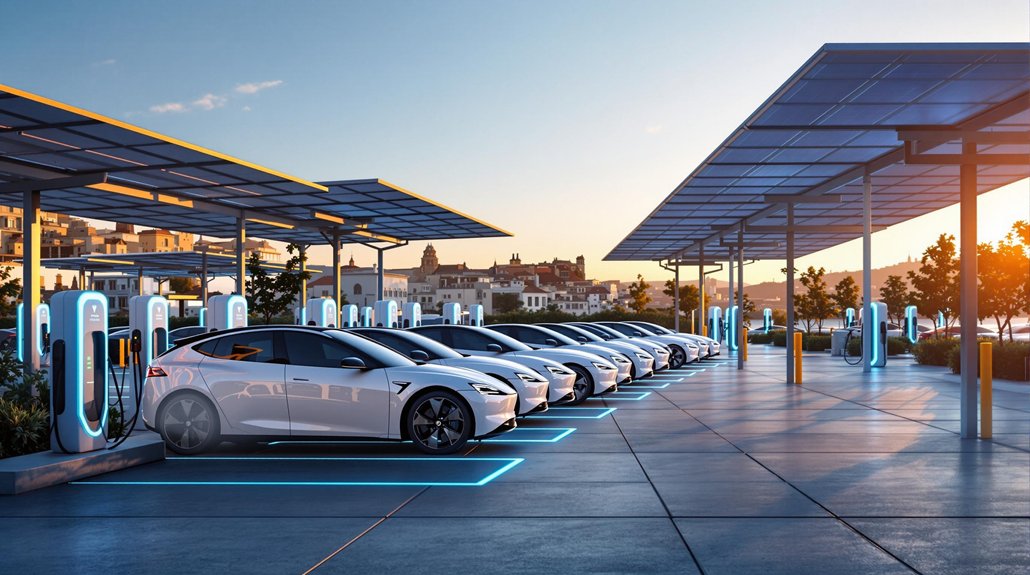In a sweeping regulatory shift that could reshape Europe’s automotive landscape, the European Union is considering a mandate requiring all rental and corporate vehicle fleets to convert to 100% electric by 2030. The proposal, strongly championed by Brussels-based NGO Transport & Environment, follows the EU Commission’s ‘Greening corporate fleets’ consultation completed in July 2024, which explored various pathways to accelerate EV adoption.
The impact on the industry could be substantial. Rental and leasing companies collectively purchase approximately 46% of all new vehicles in the EU, making them pivotal in any conversion strategy. These fleets typically refresh their inventory every two years, creating an accelerated channel for new technology deployment across the continent.
Fleet operators’ massive purchasing power makes them the EU’s strategic lever for electrifying Europe’s roads.
Current market readiness presents notable challenges. While an estimated 20% of new leased vehicles in 2023 were electric, the gap to reach 100% remains considerable. Range anxiety and insufficient charging infrastructure continue to impede faster adoption, especially for heavy-duty fleets where suitable electric models remain scarce. The draft directive addressing these challenges is expected by summer before European Parliament discussions begin.
Financial implications can’t be overlooked. EV lease prices have doubled over the past three years as leasing companies hedge against uncertain residual values. In major European markets, corporate fleets account for 60% of new EV purchases, making their participation crucial for market growth. While federal tax credits of up to $7,500 have boosted U.S. adoption rates, European approaches focus more on regulatory mandates. Industry executives warn that a rushed conversion risks market exits due to financial pressure, potentially limiting consumer options and increasing costs.
The proposed mandate includes sensible exemptions for specialized vehicles like coaches, agricultural equipment, and emergency services. The Clean Vehicles Directive already sets emission standards and includes a 2027 review that could potentially modify targets for the post-2030 period.
With the European leasing market projected to grow by US$12.17 billion between 2023-2028, the stakes are high. Financial incentives or regulatory relief may prove necessary to prevent market disruption. The burden of charging infrastructure investment looms large over fleet operators.
The EU’s approach represents a calculated gamble: leverage the fleet sector’s purchasing power to drive EV adoption while risking economic disruption if implementation moves too quickly. The outcome will likely shape Europe’s transportation ecosystem for decades to come.





